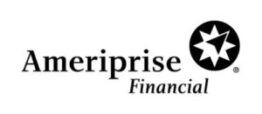Ami Kathryn Forte and Charles Joseph Lawrence of Palm Harbor Florida stockbrokers formerly employed by Morgan Stanley have been charged by Financial industry Regulatory Authority (FINRA) in a Complaint alleging that Forte and Lawrence (1) engaged in unsuitable trading of a disabled customer’s account (2) effected unauthorized trades and (3) churned the customer’s investment portfolio. Department of Enforcement v. Ami Kathryn Forte et al. Disciplinary Proceeding No. 2016049321302 (Dec. 20, 2018).
According to the Complaint, between September of 2011 and June of 2012, during the time that Forte and Lawrence were associated with Morgan Stanley, they took advantage of a seventy-nine year old customer, RS, who was cognitively impaired. The Complaint stated that quantitatively and qualitatively unsuitable trades had been executed by Forte and Lawrence in the customer’s accounts, enabling them to generate commissions exceeding $9,000,000.00 in under twelve months.
The Complaint stated that Lawrence also engaged in discretionary trading on a repeated basis in RS’s account without having procured RS’s permission. Forte’s and Lawrence’s unauthorized trading supposedly took place even while RS was in the hospital and without any ability to correspond with them. Consequently, FINRA Department of Enforcement alleged that Forte’s and Lawrence’s activities in this regard were violative of FINRA Rule 2010, NASD Rule 2510(b), and MSRB Rules G-8, G-17 and G-19.
FINRA Department of Enforcement also alleged that Forte serviced RS’s accounts since the 90’s, during which time Forte and the customer were in a romantic relationship. Forte and Lawrence supposedly knew that RS was cognitively impaired given the numerous times that Forte and Lawrence interacted with RS. Notwithstanding, the Complaint alleged that RS’s severe condition had never been reported to Morgan Stanley by Lawrence and Forte. Rather, the two reportedly amped upon their trading in the accounts RS owned following RS having been diagnosed. FINRA stated that Forte’s and Lawrence’s exploitation of RS’s conditions was violative of MSRB G-17 and Rule 2010.
Apparently, RS’s accounts showed two thousand eight hundred trades being effected by Forte and Lawrence, which generated commissions exceeding $9,000,000.00. In addition, the Complaint stated that a substantial amount of those transactions consisted of inappropriate trading of long-term investments on a short-term basis, including the trading of long-term, income producing bonds on a short-term basis. Forte and Lawrence supposedly purchased and sold the same bonds several times over a brief period, which generated more in commissions for them while at the same time providing RS no economic benefit. The Complaint alleged that Forte’s and Lawrence’s unsuitable trading was violative of MSRB Rule G-17 and G-19 as well as FINRA Rule 2010 and NASD Rule 2310.
Moreover, FINRA stated that Forte and Lawrence recklessly disregarded RS’s interests, or planned to defraud him, citing Forte’s and Lawrence’s excessive commissions from the suspicious amount of transactions they effected in RS’s accounts and their short-term, round-trip style trading of investments. Consequently, FINRA alleged that Forte’s and Lawrence’s conduct was indicative of churning; conduct violative of FINRA Rule 2010, NASD Rule 2310 and MSRB Rules G-17 and G19. FINRA alleged that Forte’s and Lawrence’s actions were also violative of Securities Exchange Act of 1934 Section 10(b), SEC Rule 10b-5; and MSRB Rules G-17 and G-19.
Forte and Lawrence were both discharged by Morgan Stanley on March 23, 2016 based upon accusations that they failed to conform to Morgan Stanley policies or industry rules by making discretionary trades in customer accounts and failing to make required disclosures about their activities.
FINRA Public Disclosure confirms Forte was subject of a customer initiated investment related arbitration claim in which the customer was awarded $34,387,777.97 in damages based on Forte being found liable on the customer’s claims of unjust enrichment; violation of Fla. Stat. § 517; violation of Fla. Stat. § 415; breach of fiduciary duty; negligence; churning; unauthorized trading; unsuitability; and fraud in regard to the transactions executed in the customer’s account.








